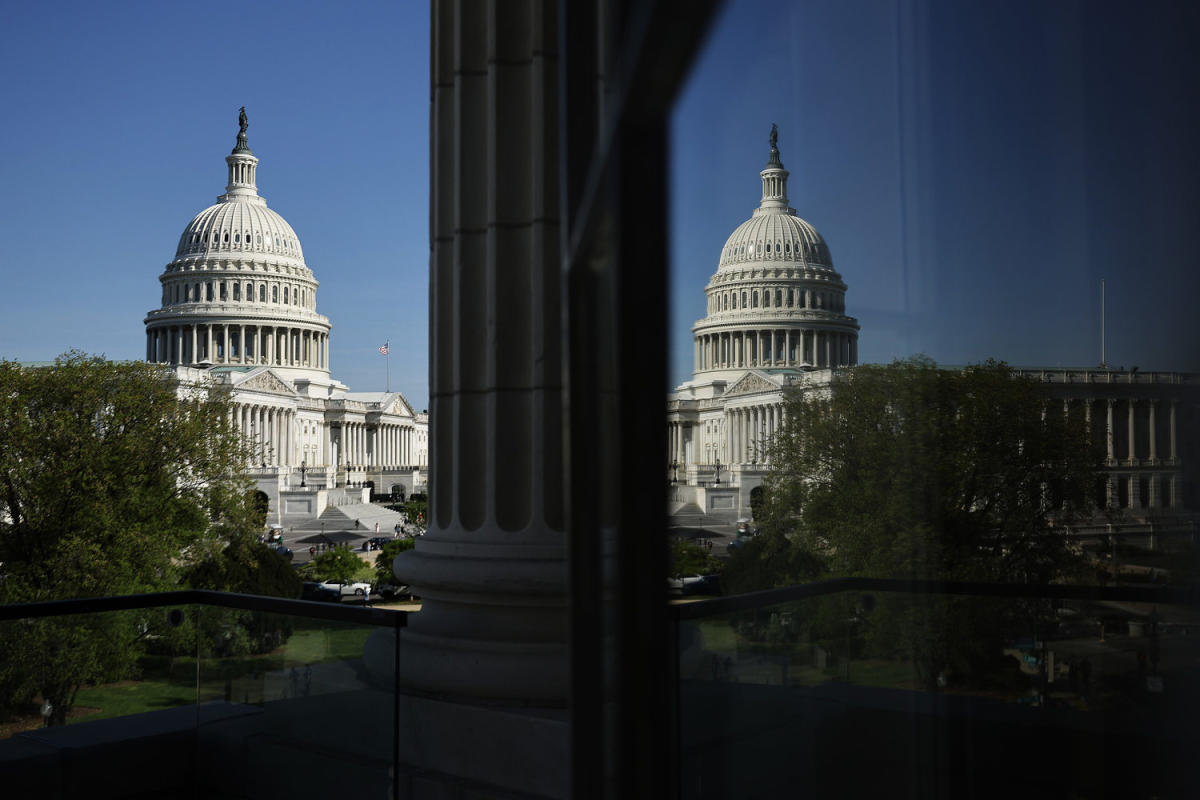WASHINGTON — The Senate has voted to reauthorize a powerful surveillance tool that the U.S. government says is critical to combating terrorism, following efforts by civil liberties advocates on the left and right to curb terrorism hold were thwarted.
The 60-34 vote sends the bill to President Joe Biden, who favors it. The legislation extends Section 702 of the Foreign Intelligence Surveillance Act (FISA) for an additional two years.
The final vote came after the Senate rejected six amendments from progressive and conservative senators who said the spy powers are too broad and demanded protections for Americans’ civil liberties and privacy. The Biden administration and FISA supporters had warned that even a brief interruption could have a detrimental effect on the intelligence-gathering process.
Senators just missed the midnight deadline to reauthorize the FISA Section 702 statute, but voted to reauthorize it minutes later. If amendments had been passed, the bill would have been returned to the House of Representatives, potentially causing the law to lapse for a long time.
“In the nick of time, bipartisanship has prevailed here in the Senate,” said the Senate Majority Leader Chuck SchumerDY, said.
“It wasn’t easy, people had many different views, but we all know one thing: expiring FISA would have been dangerous. It is an important part of our national security to stop acts of terrorism, drug trafficking and violent extremism,” Schumer said on the Senate floor. “Thank you to all my Senate colleagues on both sides of the aisle for their good work to get this done.”
The House of Representatives last week passed a two-year FISA extension after rejecting, by the narrowest of margins, an amendment that would have required a warrant to search Americans’ communications as part of the data collected during surveillance on foreigners. Senators delayed a vote for days by pushing for amendments to make changes to the bill.
The bill’s passage followed a pitched battle between the U.S. intelligence community and an unusual coalition of progressive and conservative civil liberties advocates, who argued that the powers are overbroad and encroach on Americans’ privacy.
“It’s important that people understand how sweeping this bill is,” said Sen. Ron Wyden, D-Ore., a member of the Intelligence Committee and an outspoken advocate for privacy protections. “Something was inserted at the last minute that would essentially force someone like a cable guy to spy for the government. They would force the person to do it and there would be no appeal.”
In a rare break with Schumer and Biden, Sen. Patty Murray, D-Wash., the president pro tempore, opposed the bill, saying, “I strongly believe that this expansion of FISA Section 702 authorities will increase abuse and would allow abuse. of the law – an infringement on the rights of Americans here at home.”
Senate Intelligence Committee Chairman Mark Warner, D-Va., has pushed back on this and other criticism of a House amendment added to the FISA reauthorization bill, arguing that it is “narrowly focused on significant intelligence gap,” but some members, like Wyden, are concerned. it could be abused.
“Contrary to what some say, it expressly excludes coffee shops, bars, restaurants, residences, hotels, libraries, recreational facilities and a litany of similar establishments,” Warner said on the Senate floor Wednesday. “It would also absolutely not allow the U.S. government, as some critics claim, to force, for example, a janitor who works in an office building in Northern Virginia to spy for the intelligence community.”
Warner said allowing FISA to expire would have put the US in “uncharted territory” because companies that work with the government to provide intelligence might have stopped doing so without a reauthorization.
Sen. John Cornyn, R-Texas, said that “60% of the president’s daily briefing is 702-derived material, so this is absolutely critical.”
This article was originally published on NBCNews.com






